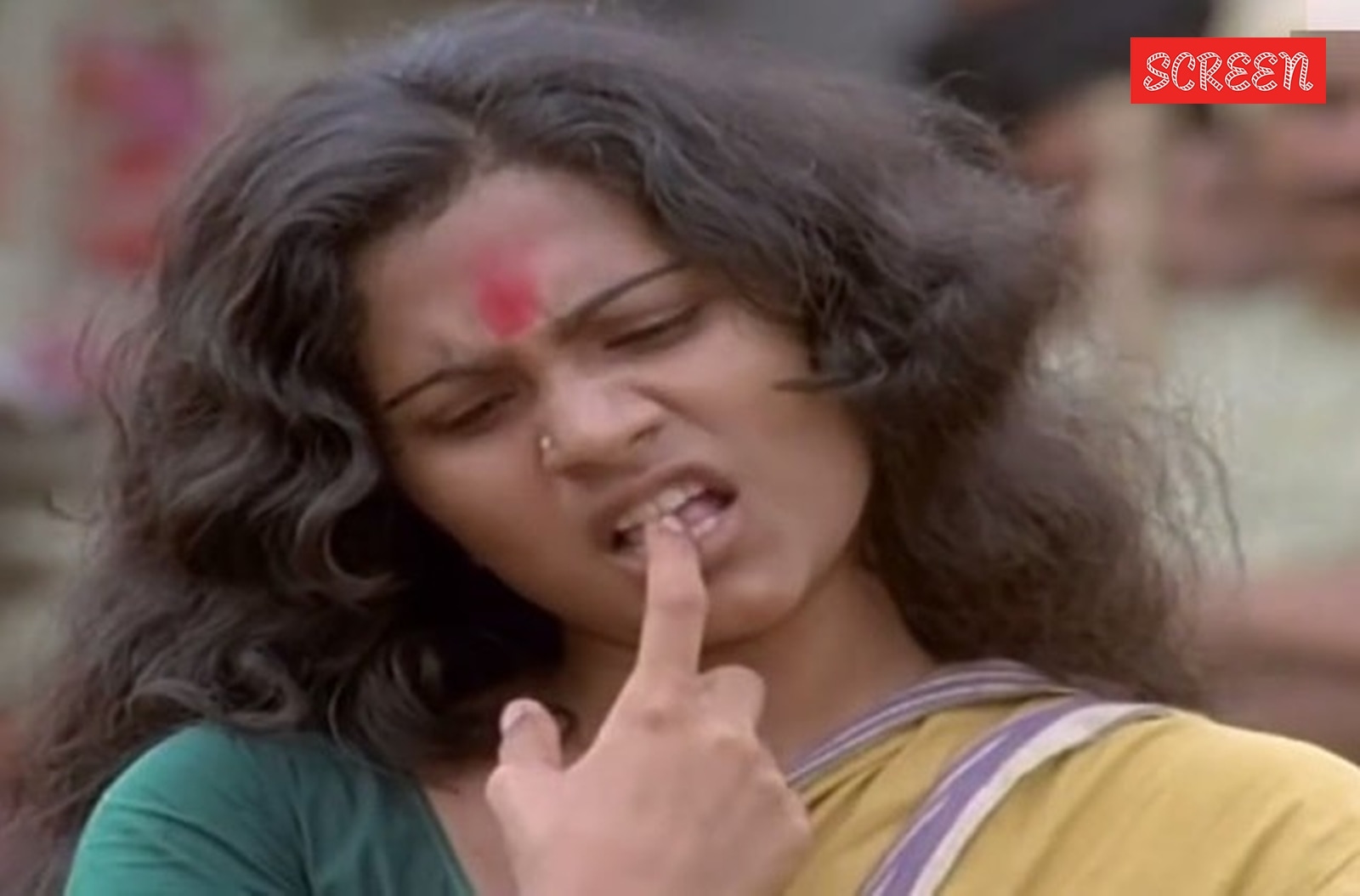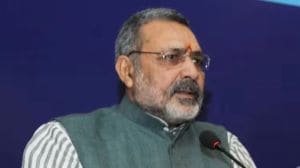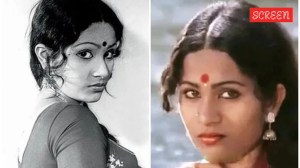Click here to follow Screen Digital on YouTube and stay updated with the latest from the world of cinema.
An actress par excellence, she took her own life at 17, weeks after winning National Film Award; relationship with director 23 years older than her led to heartbreak
Although her mother and many others alleged that she was murdered, investigations reportedly ruled out foul play as the cause of death.
 She entered the world of cinema at the age of four. (Credit: IE Malayalam)
She entered the world of cinema at the age of four. (Credit: IE Malayalam)There’s no doubt that life can be unfair at times. But what can one do when life becomes a series of unfair events that leave them with little interest in moving forward? Despite becoming a massive star and being regarded as one of the finest female actors of her era, Shoba’s life was marred by misfortunes, which prompted her to allegedly die by suicide at the age of 17, just weeks after she earned her first National Film Award for Best Actress.
Born to character actor Prema and her husband KP Menon on September 23, 1961, as Mahalakshmi, she entered the world of cinema at the age of four. Prema, who couldn’t reach the heights she desired, decided to fulfil her dreams through her daughter and thus started making the right moves, which eventually landed Mahalakshmi a role in the Savitri-starrer Tamil film Thattungal Thirakkapadum (1966). The very next year, she made her debut in Malayalam cinema in director P Venu’s Udhyogastha, where she was credited as “Baby Shoba” for the first time. Although Prema’s husband was against their daughter becoming an actor, she didn’t slow down.
Shoba soon caught the attention of major filmmakers, who began making a beeline for her. While she kept working in Malayalam, even earning the Kerala State Film Award for Best Child Artist in 1971, she took a break from Tamil cinema for some time before returning as a lead lady. According to Manorama Online, she played a lead role for the first time at the age of 15 in ace filmmaker Ramu Kariat’s Dweepu (1977). The same year, she appeared opposite Kamal Haasan in the Malayalam film Ormakal Marikkumo, directed by KS Sethumadhavan. In 1978, she made a comeback to Tamil cinema as well, playing the lead role in K Balachander’s Nizhal Nijamagiradhu.
 Shoba in Mana Voori Pandavulu. (Credit: 20cmoviestars.weebly.com)
Shoba in Mana Voori Pandavulu. (Credit: 20cmoviestars.weebly.com)
Since then, her career only soared, and she worked with several legends, delivering impactful performances and contributing to the success of many films. From Randu Penkuttikal, Uthrada Rathri, Ulkadal, Ekakini and Bandhanam to Oru Veedu Oru Ulagam, Mullum Malarum, Oru Vidukadhai Oru Thodarkadhai and Azhiyatha Kolangal, Shoba won over the hearts of audiences with her unparalleled portrayals in various movies across Malayalam and Tamil. While her performance in Mohan’s Shalini Ente Koottukari (1978) opened to widespread acclaim and played a key role in its blockbuster success, Shoba’s work in director Durai’s Pasi (1979) garnered her nationwide attention and earned her the National Film Award for Best Actress at the age of 17. She also worked in a couple of films in Telugu and Kannada, thus leaving her mark all across South India.
While flying high, she became close to director-cinematographer Balu Mahendra on the sets of their Kannada film Kokila. Shoba, who was going through a period of intense emotional insecurity, found Balu’s love and care deeply comforting. Although he was married when he met Shoba and was about 23 years older than her, the teen couldn’t discern any of this. She revelled in the romance that bloomed between them, at a time when she felt suffocated between her mother — who kept pushing her to work without even stopping to ask what she wanted — and the men in the industry who were only interested in her body. Balu, on the other hand, offered her a solace that no one else ever could or did. They also worked together in movies like Azhiyatha Kolangal and Moodu Pani subsequently.
Whether legally valid or not, an already-married Balu reportedly tied the knot with Shoba during this era. She believed that Balu would leave his first wife, Akhileshwari, and his son, Shanki, for her, but that did not happen. This dealt her a major heartbreak and purportedly played a role in pushing her towards suicide. Within weeks of receiving the National Award, when she was four months away from turning 18, Shoba reportedly ended her life by hanging herself on May 1, 1980. Although Prema and many others alleged that Shoba was murdered, investigations reportedly ruled out foul play as the cause of death.
Watch SCREEN’s exclusive interview with Ravi K Chandran here:
According to writer CV Aravind, four years after Shoba died, Prema, who had been struggling to come to terms with the loss of her daughter, also died by suicide. In a 2020 article in The News Minute, he stated that Balu admitted in later interviews that she had meant a lot to him and that he was devastated after her death. A few of her films, including the couple’s Moodu Pani, were released posthumously. Legendary Malayalam director KG George’s Lekhayude Maranam Oru Flashback (1983) was loosely based on Shoba’s life, death and her relationship with Balu Mahendra. The three of them had previously worked together in KG George’s Ulkadal.

- 01
- 02
- 03
- 04
- 05

































